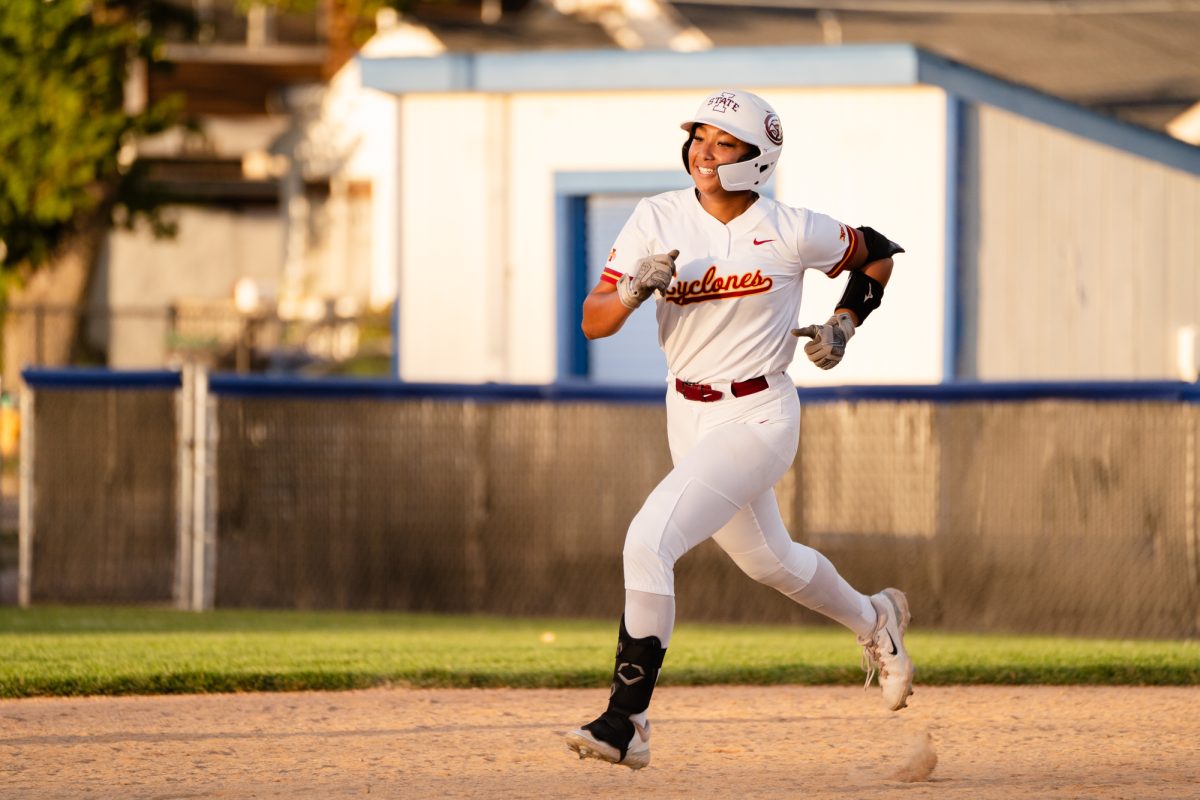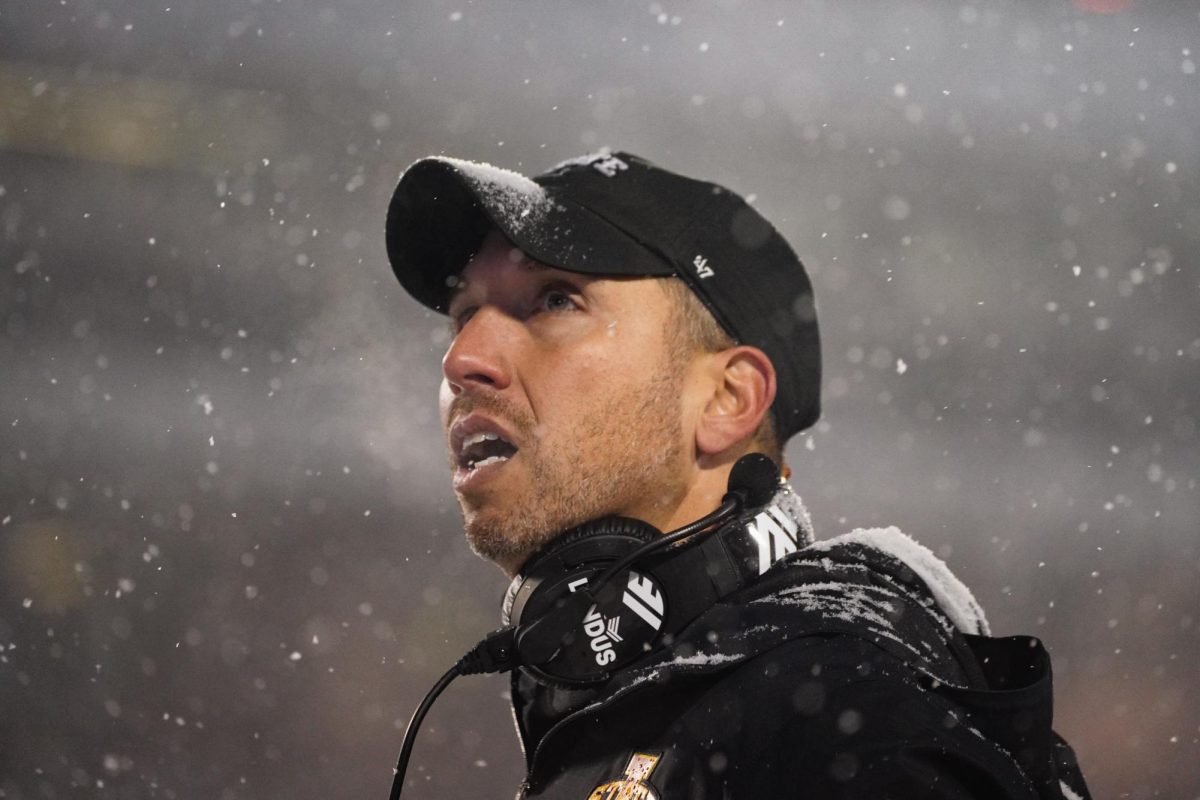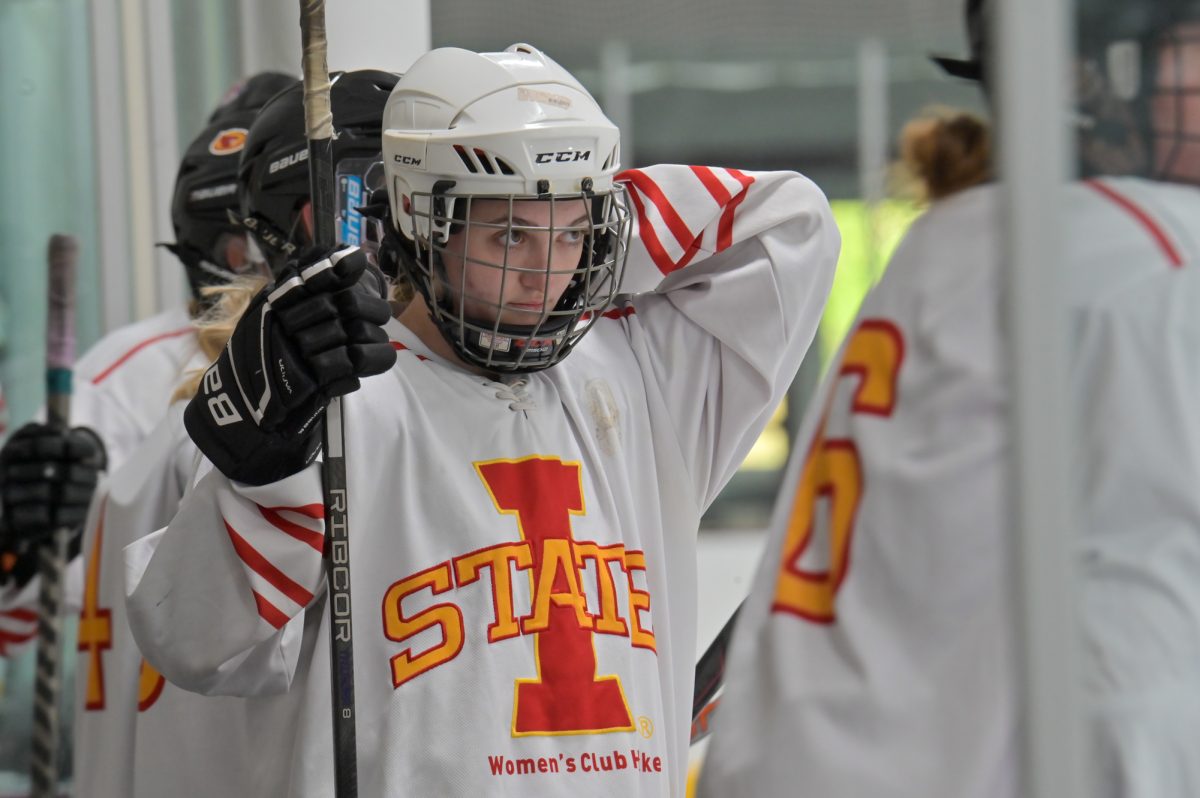International students adjust to winter in Iowa
November 9, 1998
Anyone who has already experienced at least one Iowa winter probably knows how to cope with the cold. However, there are many students new to ISU who have never experienced winter and may not know what to expect or even how to keep warm during the season.
“I heard from friends that you can go to bed one night with no snow outside, but the next morning when you get up, there can be 10 inches of snow on the ground,” said Priyanka Murthy, sophomore in economics from New Delhi.
Murthy, who came to ISU this fall, said her friends and relatives advised her to buy winter wear such as boots, gloves and coats.
She said the coldest it gets in her country is probably only about 37.4 degrees Fahrenheit.
Keeping warm during winter is important, said Dr. Malhar Gore, staff physician at the Student Health Center.
“Death can be one of the dire consequences if one is not careful,” he said.
Native Iowan Jan Eivins, senior in dietetics, suggested wearing several layers of clothing. She described winter as unpredictable.
“Sometimes it can be mild, sometimes it’s freezing, and we can sometimes have a lot of snow overnight,” she said. “But whatever it is, you can be sure it is always cold enough to dress in layers.”
Gore agreed that wearing layers helps.
“Layers … hold in heat by trapping air pockets between the layers, and it is also advantageous because if you are in a warm classroom, you can take off a layer to feel more comfortable,” he said.
Eivens recommends wearing mittens and thermal underwear as well.
“I would also advise students to get a thick winter coat and to remember to cover their faces and ears,” she said.
Gore said most people cover the central part of the body but forget about the peripheral parts such as toes, fingers, ears and the nose.
“These are the common body parts that are affected by the cold because heat flows out into the air through the extremities if not covered, and this results in significant heat loss,” Gore said.
Billy Wong, one of the seven international peer assistants at the Office of International Students and Scholars, cautioned students about walking on winter roads.
“Be careful and walk properly or else you’ll be constantly falling down,” said Wong, senior in management information systems who transferred to ISU from Malaysia two years ago.
“You have to know how to walk, and watch out for those slick spots on the roads,” he said.
Gore said many accidents are caused by the use of inappropriate footwear. The right kind of tracks or treads on boots are needed to walk on the slippery roads during the winter, he said.
Apart from dressing appropriately, students should also watch the kinds of food and drinks they consume during this time, Gore said.
“Although many students may think alcohol warms up the body, this may only be true for the first five minutes,” he said. “Consumption of alcohol doesn’t help after long periods of time. Actually, it causes changes in the body that would result in more heat loss, as well as retard re-warming.”
Gore said it also is a misconception that smoking helps to keep a person warm.
“The smoker will actually be exhaling heat from the body system and inhaling cold air, resulting in an increase in heat loss,” he said.
People should always be prepared for bad weather, especially when traveling, Gore said. He said if someone is stuck outside in the middle of a snowstorm, heat is lost rapidly, resulting in hypothermia, frostbite and probable death.
Gore said the Student Health Center sees a lot of students during the winter who are treated for “cold exposure injury,” or minor frostbite. He advised a person with frostbite to seek emergency treatment and to re-warm the affected body part with lukewarm water.
He also recommended that students obtain flu shots as soon as possible, because the flu is one of the major health concerns during winter.
Gore said paying attention to the weather forecast also is helpful.
“The news on television, radio and even the Internet sites … are helpful in keeping the student informed of what’s going to happen and what to prepare for,” he said.
Whether international students remember Iowa’s winter for its cold or the fun sports and games that can be played, most will probably never forget the experience.
“The first time I saw snow in Iowa, I was really excited,” Wong said. “I had never seen snow before I came here, except on television, so I was looking forward to it.”
Wong said this winter will be his third in Iowa.
“Apart from finding that going to class is inconvenient, I think I have grown used to the winters here already,” he said.
Eivins said although it is not her favorite time of the year, she does look forward to skiing, sledding and playing snow football.
Wong agreed.
“I don’t actually hate [Iowa winter], nor do I like it, but it definitely will be one of the many things that I will remember about Iowa,” he said.






